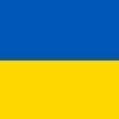Announcements
-
Topics
-
Latest posts...
-
18
Thai man survives attempted murder orchestrated by ex-girlfriend
I've had two, I ran and hid from both! Then I found one so violent, she scared the first two off after beating one of them unconscious. Happily married to number three for 15 years. -
76
When Our Money Dies
This is a very valid point and another reason not to put all your eggs in one basket by selling all Western assets and moving permanently to Thailand. You will never be a full citizen of Thailand. -
5
Anti-Israel Bias in NYC Schools Fueled by Foreign Influence and Activist Educators
In his speech to the UN in September Netanyahu showed a map of the Middle East showing Greater Israel, i.e. the West Bank and Gaza were part of Israel. The most extreme religious Zionists show Greater Israel extending from the Nile to the Euphrates. It must be because the Jews were there in the Bible. Until recently, the territory of Israel was part of the Arab World, even if it was ruled by the Ottomans for several centuries. Palestine is a gheographical designation, but is not a nation state, for now at least. -
25
Clashes and Arrests as Tommy Robinson Supporters March Through London
Resign? He needs to be locked up for assault. He won't be of course. He's from the left wing political class. I doubt he will even be charged. -
11
-
76
When Our Money Dies
To the topic ... when ? Don't wait for that to happen. ... be self sufficiency & independent. Take care, control of your own affairs, and you won't need the rest of the world for anything. Rely on others, and you will fail -
25
Clashes and Arrests as Tommy Robinson Supporters March Through London
You're not a moderator, so don't tell me what I can post, you need to wind your neck in.- 1
-

-
734
Trump ahead in all battleground states - ALL OF THEM!
They weren't very wrong. She did win the popular vote quite soundly. Exit polls are very different than pre vote polling. -
416
Joe Rogan releases podcast with Trump, draws 300K views in 30 minutes
You said they were an audience he already has. I beg to differ. Lots of swing voters would have watched it, just as they would have watched Harris' disastrous appearence on CNN with Cooper. -
329
Deadlocked Between Trump and Harris in NBC News Poll as Election Approaches
Do you care what the other posters think about your posting lies? Or do you just post for giggles?
-
-
Topics
-
Recently Browsing 4 members
.png.3b3332cc2256ad0edbc2fe9404feeef0.png)










.thumb.jpeg.435f0fb7221c5dd6500feca45095b936.jpeg)
Recommended Posts
Create an account or sign in to comment
You need to be a member in order to leave a comment
Create an account
Sign up for a new account in our community. It's easy!
Register a new accountSign in
Already have an account? Sign in here.
Sign In Now